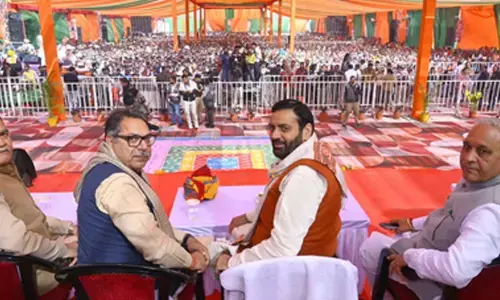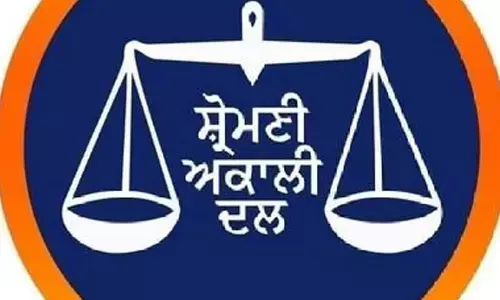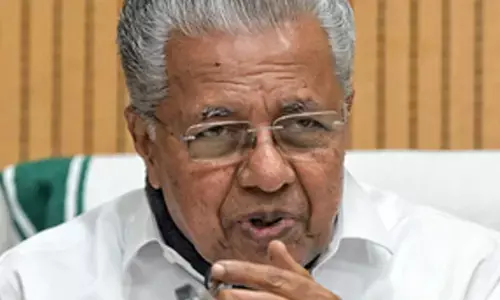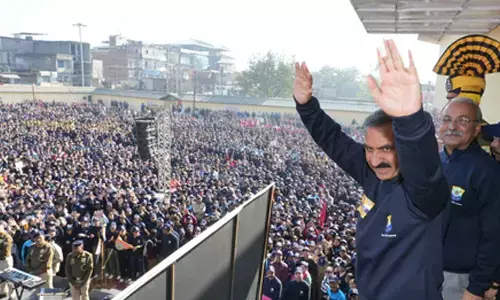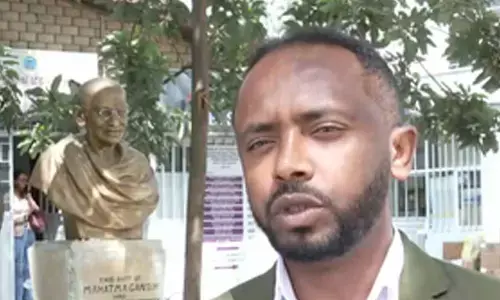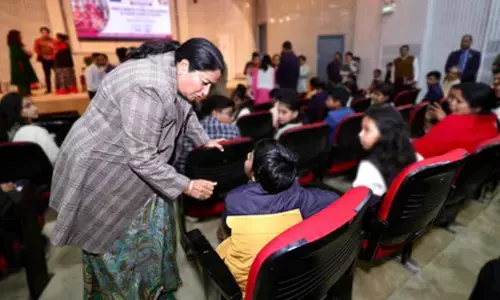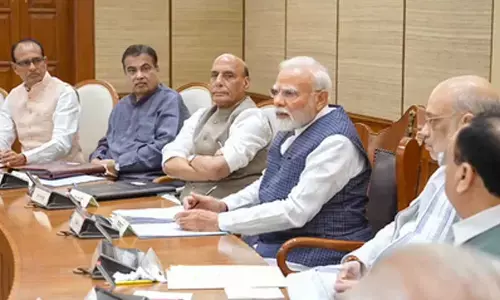SC Constitution Bench reserves verdict on issue of granting immunity to lawmakers for accepting bribes
Share :
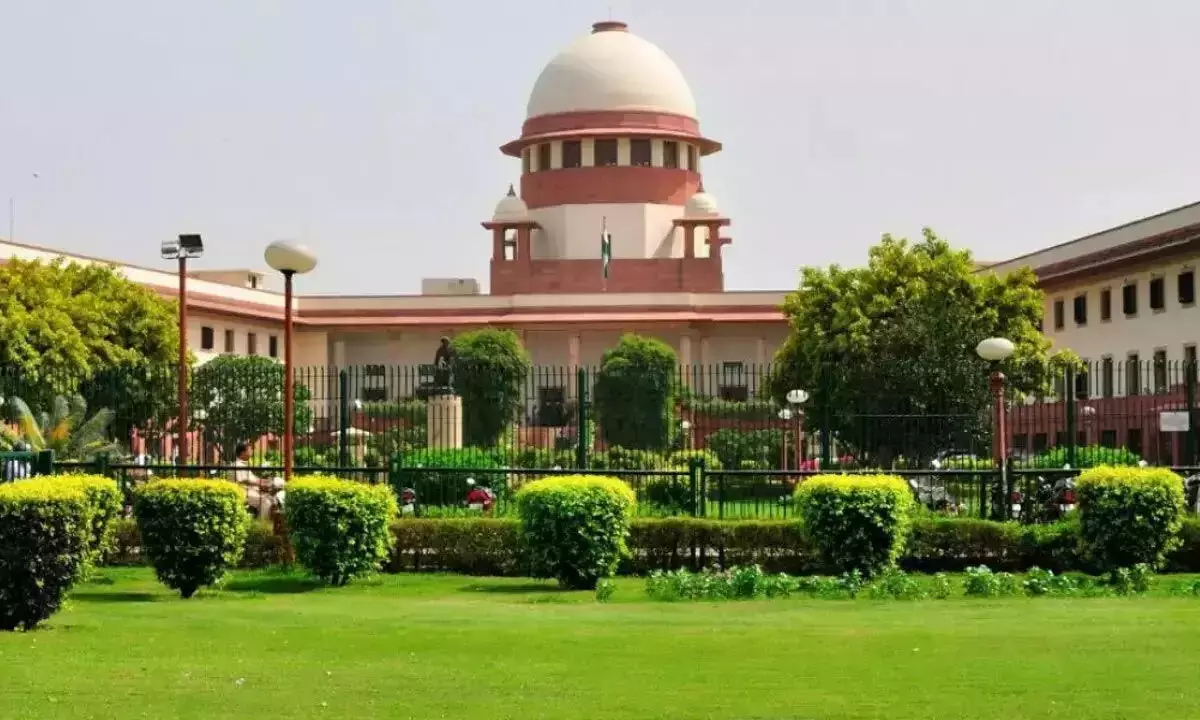
A 7-judge Constitution Bench, headed by CJI D.Y. Chandrachud, on Thursday reserved its verdict on a reference made against a 1998 judgment of the apex court granting immunity to lawmakers from criminal prosecution for accepting bribes to make a speech or vote in the Parliament or state legislatures.
New Delhi: A 7-judge Constitution Bench, headed by CJI D.Y. Chandrachud, on Thursday reserved its verdict on a reference made against a 1998 judgment of the apex court granting immunity to lawmakers from criminal prosecution for accepting bribes to make a speech or vote in the Parliament or state legislatures.
The Constitution Bench, also comprising Justices A.S. Bopanna, M.M. Sundresh, P.S. Narasimha, J.B. Pardiwala, Sanjay Kumar, and Manoj Misra, reserved the judgments after arguments were concluded from both sides.
During the hearing, Solicitor General Tushar Mehta, appearing for the Centre, pleaded that the real question is whether bribery can be protected under garb of immunity granted under the Constitution.
He stressed that the objective of privileges is to ensure that the legislators exercise their right to vote and speech freely and fearlessly, adding that the Constitution Bench may have an option to classify the 1998 judgment in P.V. Narasimha Rao versus CBI case as per incuriam which failed to take into account the statutory scheme of Prevention of Corruption Act, 1998, instead of making a declaration that it is not a good law.
"Performance is irrelevant. The offence (of bribery) does not include performance and offence is complete outside the House, there is no question of privilege being claimed or immunity being established," Mehta said.
Senior advocate Vijay Hansaria, appearing for an intervenor, submitted that 40 per cent legislators have criminal cases against them as per a report and there is a strict need to curb the criminalisation of politics.
He said that Article 105 of the Constitution giving immunity to a member of Parliament "in respect of anything said or any vote given by him in Parliament or any committee thereof" must be interpreted to mean only those acts that are essential for undertaking the legislative functions, adding that the penal laws of the country are applicable to the legislators in the same way as applicable to the ordinary citizen.
The Centre on Wednesday had submitted that the immunity given to MPs/MLAs should not protect them from criminal prosecution for accepting bribes saying that performance part of the bargain in terms of giving vote or speech is not relevant as the offence is committed outside the House.
In its 1998 judgment in P.V. Narasimha Rao versus CBI case, the Supreme Court had held that the parliamentarians, against the backdrop of Article 105 of the Constitution, enjoy immunity against criminal prosecution in respect of anything said or any vote given in Parliament. Similar immunity is conferred by Article 194(2) on Members of the State Legislatures.
In 2019, a 3-judge bench headed by then Chief Justice of India Ranjan Gogoi referred the issue for consideration to a larger bench having regard to the "wide ramification of the question that has arisen" after Jharkhand Mukti Morcha member Sita Soren approached the Supreme Court in 2014 seeking nullification of criminal charges instituted against her for allegedly accepting a bribe to vote in favour of a particular candidate in the Rajya Sabha elections of 2012.
Recently, the Supreme Court decided to constitute a 7-judge Constitution Bench saying that the object of Articles 105 and 194 is clearly not to set apart the members of the legislature as persons who wield higher privileges in terms of immunity from the application of the general criminal law of the land which citizens of the land do not possess.








